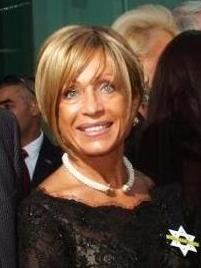“Those who have a “why” to live, can bear with almost any
“how.” – Victor J. Frankl
“The two most
important days in your life are the day you are born and the day you find out
why.” – Mark Twain
Va’etchanan, this week’s Torah portion is the second portion
in the book of Deuteronomy (3:23-7:11). Moshe continues his final sermon to Am
Yisrael. He shares with them how he pleaded (Va’etchanan) with G-d to allow him
to enter the Promised Land and sums up some of the key milestones along their journey
through the desert.
“Remember the day at Mount Sinai when G-d spoke to you out
of the midst of fire,” Moshe reminds them. That day, in our Jewish history, is
what Mark Twain refers to, in the above quote, as “one of the two most
important days” in our life as a People. It was the day Am Yisrael and the Jewish
Nation were born, the day we became a “A kingdom of Priests and a Holy Nation
unto G-d.” (Exodus 19:6).
On that first important day, we also declared in one unanimous
voice, “we shall do, and we shall harken.”
By proclaiming these words, our People, composed of a former
community of tribes, most of whom were illiterate slaves, unconditionally
accepted and affirmed the “what” and the “how” of our Jewish Moral Code of Law.
We took upon ourselves the burden of the Mitzvot and how to follow them. I
doubt many, if any, understood what they meant and “why” it was important to
follow and obey them.
For the forty years of wandering in the desert, Bnei Yisrael
were repeatedly taught the “what” and the “how.” During that period, though, Moshe
does not dwell as much on the core of the reasons behind the mitzvot, on the “why,”
or what the ancient Greeks call Telos.
As Frankl suggests above and as many of us have learned in
life, knowing the “why” facilitates and eventually enables us to overcome the
harshest of obstacles and hurdles posed before us on our odyssey through life. The
search for the meaning of our existence requires us to discover what Twain
defines as “the second most important day of our life,” the day we discover the
“why.”
In his article, “The Power of Why,” Rabbi Sacks also
addresses the relevance of the “why” in our life. He shares with us a TED talk
by Simon Sinek, an English American author and inspirational speaker. In it, Sinek
asked, “How do great leaders inspire action? What made people like Martin
Luther Kind and Steve Jobs stand out from their
contemporaries who may have been no less gifted, no less qualified. Sinek’s
answer, tells us Sacks, is “Most people talk about the what. Some people
talk about the how. Great leaders, though, start with the why.
This is what makes them transformative.”
Moshe, undoubtedly, understood the importance of the
concept. Unlike other sermons delivered
by him, in the past, his final farewell not only stresses the duty to follow
the commandments, but it also unveils a new facet of them, thus reinforcing their
solemnity. It reveals to Am Yisrael, the universal “why” behind the Mitzvot.
Though on other occasions, in the past, the decree to follow
the Torah was backed by the “why,” it was, generally, in the form of personal, individual
and even national rewards for following them or subsequent punishment for
disobeying them. For instance, the personal merit that is attached to the Fifth
Commandment which requires us to honour our mother and father, promises the
granting of a long life by G-d. Likewise, as a nation, we are warned against
the dire consequences of any deviation from the Law as well as promised the
rewards that await us for complying with it.
However, in Moshe’s “Swan Song,” in Va’etchana,” we learn about
a much bigger and more significant reason for adhering to the One G-d and His
commandments. This one is a universal “why” which ascribes the importance of preserving
Jewish existence and survival. “Observe them carefully for this will show your
wisdom and understanding to the nations, who will hear about them and say, ‘Surely
this great nation is a wise and understanding people.’ What other nation is so
great as to have their gods near them the way the Lord, our G-d is near us
whenever we pray to him? And what other nation is so great as to have such
righteous decrees and laws as this body of laws I am setting before you today?” (Deuteronomy 4:6-8).
This is the big “why,” behind the “what” and the “how” that
we were given in Mount Sinai. It is not merely for the gain of Bnei Yisrael as individuals,
or as members of a Nation but it is also a universal benefit. It is the “why” that
serves to fulfill the exceptionally enormous role that we were destined to play
as “a Holy Nation unto G-d,” in the history of mankind.
May we, Am Yisrael and the Jewish People be comforted on
this Shabbat Nachamu and be worthy of the role that G-d and history have allotted
to us.
Shabbat Shalom









